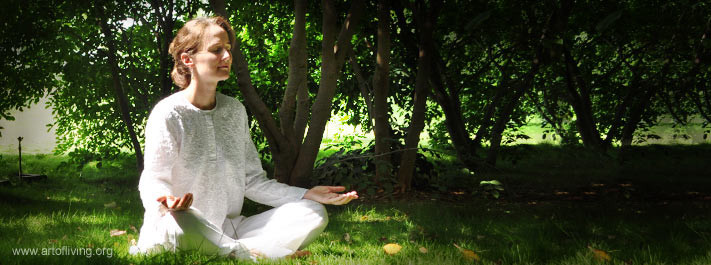
Beginner meditators often feel that they are sleeping during their meditations when in fact they have entered the meditative state. This is quite natural because, until we are familiar with meditation, we associate deep relaxation mainly with sleep.
Of course, sometimes we do fall asleep in meditation, but that is fine. It is important to not be vigilantly guarding against falling asleep during meditation. Take sleep and dullness in meditation to be the release of fatigue and stress. For some of us, it will be necessary to go through a lot of sleep and fatigue during meditation, and sometimes even after meditation, but know that it is a very beneficial clearing process.
If you have an overwhelming feeling to lie down and sleep during meditation, then do that, and when you wake up, sit up and meditate for five minutes or so. Your system would have cleared some backlog of fatigue and so even a short meditation after waking will be very useful (don't lie down unless you feel you absolutely have to!).
After a few meditations, it usually becomes clear that sleep and meditation are quite distinct states. Coming out of sleep, one feels a little dull, but emerging from the deeply settled "no mind" state, one basks in clarity, feels peaceful, and is often joyous. Also, the breathing pattern during deep sleep and meditation are quite different. Deeper states of meditation are associated with very feeble breath or even suspension of breath, whereas in sleep, respiration does reduce, but to a lesser extent. (Please don't try to figure out during your meditations whether at certain times you were sleeping or deeply meditating. Whatever is happening is fine is the attitude to take.)
The key distinction between meditation and sleep is the presence of alertness in meditation and its absence in sleep. But meditative alertness is of a different quality to that of the waking state. To understand that distinction, and also how meditation and sleep are different, we need to consider how the four modes of consciousness—mind, intellect, memory, and ego—operate in the waking, dreaming, and sleeping states and also in the fourth state of consciousness, which is experienced in meditation, traditionally called the turiya state.
In the waking state, the mind, intellect, memory, and ego are all functioning to some extent. In the dream state, only memory (chitta) is functioning. In deep sleep, all four are in abeyance—the consciousness is devoid of any activity.
In the meditative state, the mind, which receives input from the senses, is in abeyance. Ego is also not active, but the intellect and chitta are functioning subtly. Meditation is is very like sleep, but with a subtle idea or trace of intellect and, in turiya, a spontaneous perception of our real nature.
Guruji tells us that there are two types of letting go. One is where everything is dropped and you sink into an unconscious state—this is sleep. It is a tamasic state, where knowledge is not available. The other type of letting go is where you completely relax, but with a trace of intention or feeling that very subtly continues to be—that is meditation. Meditation and sleep are both hypometabolic states, that is, breathing and other parameters of body activities decline. Both release stresses, but the rest that meditation gives is much deeper than that provided by sleep, and so deeper rooted impressions or samskaras are removed from the system.
Yet meditation is completely beyond sleep. It is consciousness knowingly becoming conscious of itself. That same consciousness is present during waking, dreaming, and sleep, and is the witness of them.
Although in sleep the consciousness is not active in any of its "modes", it is still present as the witness to sleep. This is how you know that you had a "good sleep".
As Guruji beautifully says, "Wakefulness and sleep are like sunrise and darkness, while dreams are like the twilight in between. Meditation is like the flight to outer space, where there is no sunset, no sunrise—nothing!"
Written by Chris Dale, Advance Meditation Course teacher
Related Articles
Meditation and Sleep - Similar yet Different
Meditation for Insomnia